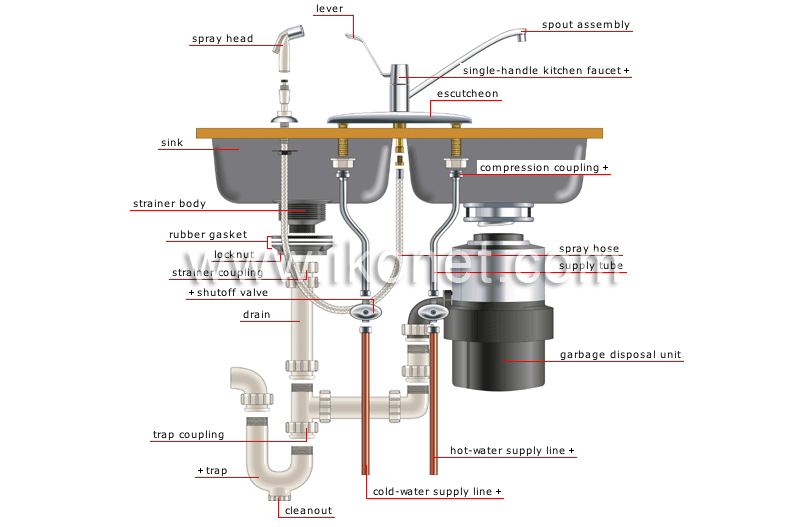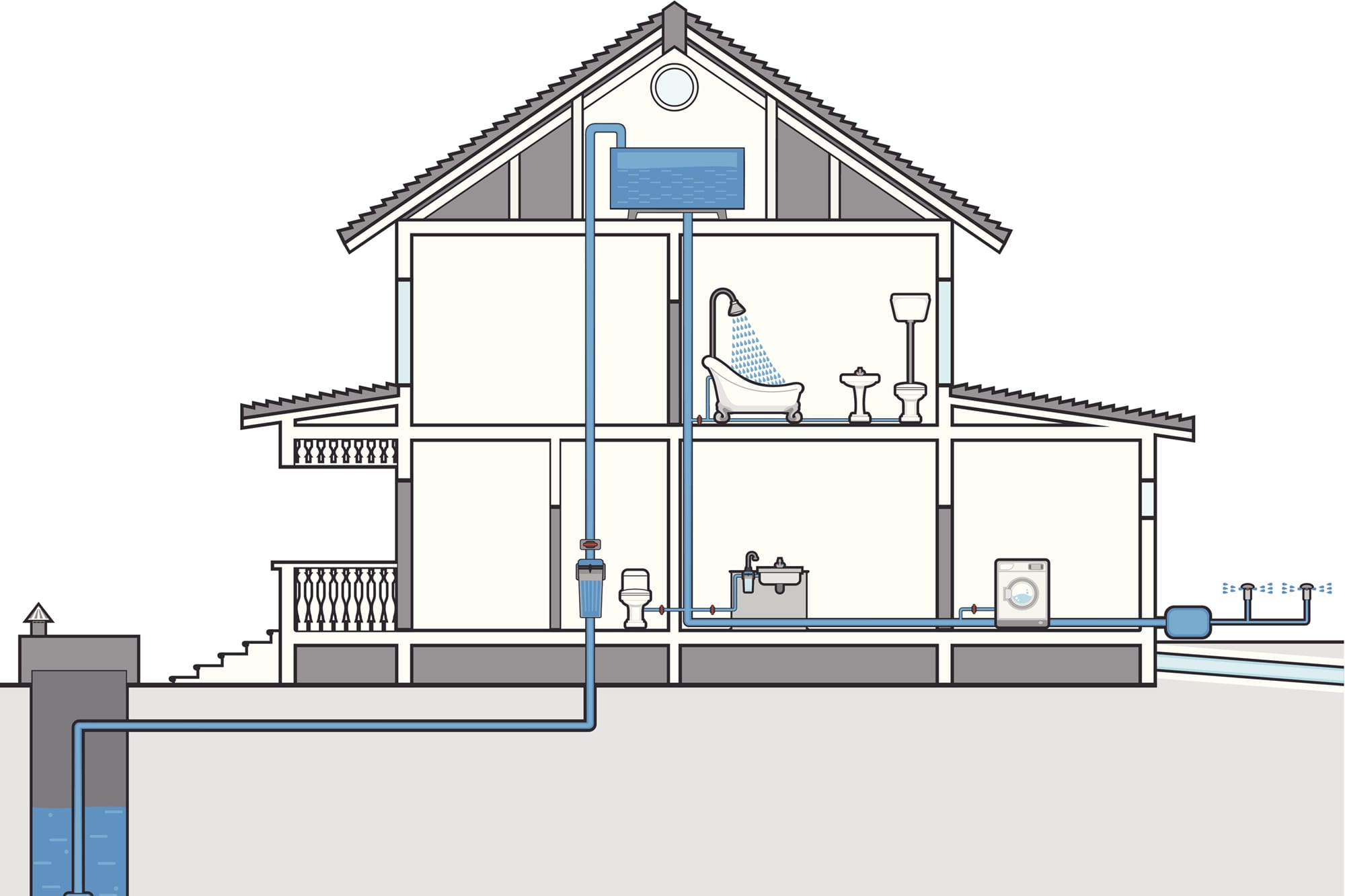The author is making a few good annotation relating to Understanding Your Home's Plumbing Anatomy as a whole in this post below.

Understanding how your home's pipes system works is essential for every single property owner. From supplying clean water for alcohol consumption, cooking, and showering to safely eliminating wastewater, a well-kept plumbing system is critical for your family's wellness and convenience. In this comprehensive guide, we'll check out the elaborate network that comprises your home's plumbing and offer tips on maintenance, upgrades, and dealing with typical problems.
Introduction
Your home's pipes system is greater than simply a network of pipes; it's a complicated system that ensures you have access to clean water and efficient wastewater removal. Knowing its components and how they work together can aid you protect against pricey fixings and make sure whatever runs efficiently.
Standard Elements of a Pipes System
Pipes and Tubes
At the heart of your plumbing system are the pipes and tubing that lug water throughout your home. These can be made of different materials such as copper, PVC, or PEX, each with its benefits in terms of toughness and cost-effectiveness.
Components: Sinks, Toilets, Showers, and so on.
Components like sinks, bathrooms, showers, and bath tubs are where water is utilized in your home. Recognizing just how these components connect to the pipes system assists in diagnosing problems and preparing upgrades.
Valves and Shut-off Factors
Shutoffs manage the flow of water in your pipes system. Shut-off valves are crucial throughout emergency situations or when you need to make repair work, allowing you to isolate parts of the system without disrupting water circulation to the whole home.
Supply Of Water System
Key Water Line
The major water line links your home to the municipal water system or a personal well. It's where water enters your home and is dispersed to different components.
Water Meter and Pressure Regulator
The water meter actions your water usage, while a stress regulator ensures that water moves at a risk-free stress throughout your home's pipes system, avoiding damages to pipes and components.
Cold Water vs. Warm water Lines
Comprehending the difference between cold water lines, which provide water directly from the main, and warm water lines, which carry warmed water from the water heater, helps in fixing and preparing for upgrades.
Drain System
Drain Water Lines and Traps
Drain pipelines bring wastewater far from sinks, showers, and commodes to the sewage system or sewage-disposal tank. Traps stop sewage system gases from entering your home and additionally catch debris that could cause obstructions.
Air flow Pipelines
Ventilation pipes allow air right into the drainage system, avoiding suction that might slow water drainage and trigger traps to vacant. Appropriate ventilation is crucial for preserving the stability of your plumbing system.
Significance of Correct Water Drainage
Guaranteeing correct drainage avoids backups and water damages. Consistently cleaning up drains pipes and preserving traps can protect against pricey fixings and expand the life of your pipes system.
Water Furnace
Kinds Of Hot Water Heater
Hot water heater can be tankless or conventional tank-style. Tankless heaters heat water on demand, while tanks store heated water for prompt usage.
Updating Your Pipes System
Reasons for Upgrading
Upgrading to water-efficient components or changing old pipelines can enhance water high quality, minimize water expenses, and enhance the worth of your home.
Modern Pipes Technologies and Their Benefits
Explore modern technologies like wise leak detectors, water-saving toilets, and energy-efficient hot water heater that can save money and lower ecological effect.
Cost Factors To Consider and ROI
Compute the ahead of time expenses versus long-term financial savings when taking into consideration pipes upgrades. Numerous upgrades spend for themselves via decreased utility costs and fewer repairs.
Exactly How Water Heaters Connect to the Pipes System
Understanding exactly how water heaters attach to both the cold water supply and warm water distribution lines aids in identifying issues like not enough hot water or leakages.
Maintenance Tips for Water Heaters
Regularly flushing your hot water heater to remove debris, inspecting the temperature settings, and examining for leaks can prolong its lifespan and boost energy performance.
Typical Pipes Problems
Leakages and Their Causes
Leakages can happen as a result of aging pipelines, loose installations, or high water stress. Addressing leakages quickly protects against water damages and mold development.
Blockages and Clogs
Clogs in drains pipes and toilets are commonly brought on by flushing non-flushable items or a build-up of grease and hair. Utilizing drain displays and being mindful of what drops your drains can avoid obstructions.
Signs of Pipes Troubles to Look For
Low tide pressure, slow drains, foul odors, or abnormally high water costs are signs of possible plumbing troubles that ought to be addressed immediately.
Pipes Maintenance Tips
Normal Evaluations and Checks
Set up annual pipes evaluations to capture issues early. Look for indications of leaks, rust, or mineral build-up in faucets and showerheads.
Do It Yourself Maintenance Tasks
Easy tasks like cleansing tap aerators, checking for commode leaks using color tablets, or shielding revealed pipes in cold environments can prevent significant pipes problems.
When to Call a Specialist Plumber
Know when a plumbing concern requires expert competence. Trying complicated repairs without appropriate understanding can bring about more damages and greater fixing costs.
Tips for Minimizing Water Usage
Easy practices like dealing with leaks promptly, taking shorter showers, and running full tons of washing and meals can conserve water and lower your utility bills.
Eco-Friendly Plumbing Options
Consider sustainable plumbing products like bamboo for flooring, which is durable and environmentally friendly, or recycled glass for countertops.
Emergency Preparedness
Steps to Take Throughout a Pipes Emergency situation
Know where your shut-off shutoffs are located and how to turn off the water supply in case of a ruptured pipeline or significant leakage.
Significance of Having Emergency Contacts Useful
Keep contact information for local plumbing technicians or emergency situation solutions easily offered for quick reaction throughout a pipes situation.
Ecological Influence and Preservation
Water-Saving Components and Home Appliances
Installing low-flow taps, showerheads, and commodes can considerably lower water usage without giving up efficiency.
DIY Emergency Situation Fixes (When Relevant).
Short-term solutions like making use of air duct tape to spot a leaking pipe or putting a bucket under a dripping tap can reduce damages up until a professional plumbing arrives.
Conclusion.
Recognizing the makeup of your home's pipes system equips you to keep it properly, conserving money and time on fixings. By following normal upkeep regimens and remaining educated concerning modern plumbing technologies, you can ensure your plumbing system operates successfully for years to come.
The Anatomy of Your Home s Plumbing System
Understanding the anatomy of your home s plumbing system is essential for any homeowner. It not only helps in identifying potential issues but also facilitates effective communication with professionals when repairs or upgrades are needed. Your home s plumbing system is more than just pipes and faucets; it s a complex network that ensures the efficient and hygienic flow of water in and out of your house. In this blog, we ll dissect the crucial components of your home s plumbing system. For those in Antelope Valley, Brock Plumbing is your trusted partner for all your plumbing needs, ensuring your system functions smoothly and efficiently.
Water Supply System
Main Water Line: This is where your home s plumbing system begins. The main water line connects your home to the public water supply or a private well. Pipes and Shut-off Valves: Pipes distribute water throughout your home. Shut-off valves are crucial for controlling the flow of water and making repairs without shutting off the entire system. Drainage System
Drain Pipes: These pipes carry waste and water away from sinks, toilets, and showers. Vents: Vents allow sewer gases to escape and help maintain proper pressure in the drainage pipes, ensuring efficient flow of wastewater. Traps: Every fixture has a trap, a U-shaped pipe that holds water and prevents sewer gases from entering your home. The most common is the P-trap under sinks. Fixtures and Appliances
Fixtures and appliances are the most interacted with parts of your plumbing system. They include sinks, toilets, showers, dishwashers, and washing machines. Each fixture and appliance has its own supply and drainage connection, ensuring they receive clean water and can dispose of wastewater effectively.
Water Heating System
Your water heater is a crucial component, providing hot water to various fixtures and appliances in your home. It can be tank-based or tankless, with each type having its own set of advantages and maintenance requirements. Regular maintenance is essential to ensure efficient operation and extend the lifespan of the unit.
Sump Pump
In areas prone to flooding or with high water tables, a sump pump is an essential part of the plumbing system. It s installed in the lowest part of your basement or crawlspace and pumps out water that accumulates, preventing flooding and protecting your home from water damage.
Septic System
Homes that are not connected to a municipal sewer system have a septic system and an underground wastewater treatment structure. Understanding how to maintain your septic system is crucial to prevent backups, odors, and early system failure.
Conclusion
Your home s plumbing system is a complex and essential network, ensuring the efficient and hygienic flow of water in and out of your property. Understanding its key components helps in maintaining it properly and identifying issues before they escalate into major problems. For residents in Antelope Valley, Brock Plumbing is dedicated to providing top-notch services, ensuring that every part of your plumbing system is in perfect working order. Trust our team of professionals to handle all your plumbing needs, ensuring your home remains comfortable, safe, and well-maintained.
https://brockplumbinganddrains.com/blog/the-anatomy-of-your-homes-plumbing-system/

We are very eager about Exploring Your Homes Plumbing Anatomy and I'm hoping you appreciated the entire blog posting. I beg you take the opportunity to share this article if you appreciated it. I praise you for being here. Don't hesitate to come visit our blog back soon.
Click Here